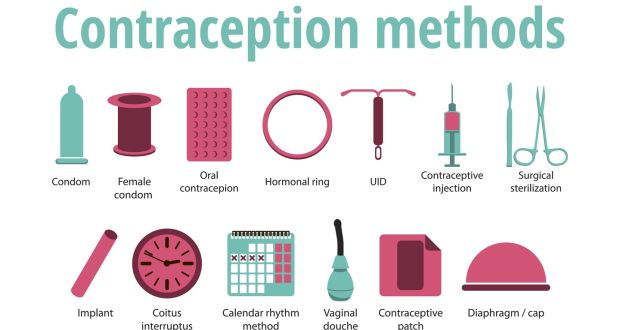
Sexual health is an integral part of overall well-being that encompasses physical, emotional, mental, and social aspects related to sexuality. It is essential to understand and prioritize sexual health to lead a fulfilling and healthy life. By taking care of your sexual health, you not only protect yourself and your partners from sexually transmitted infections (STIs) but also enhance intimacy and overall quality of life.
Understanding Sexual Health
Sexual health can be defined as a state of physical, emotional, mental, and social well-being in relation to sexuality. It is not merely the absence of disease or dysfunction but also the presence of positive and respectful sexual experiences. The components of sexual health include sexual pleasure, consent, safety, and the ability to have satisfying relationships.
Various factors contribute to sexual health, including access to education, healthcare services, and supportive environments. However, there are still many misconceptions and stigmas surrounding sexual health, leading to shame, fear, and discrimination. It is crucial to dispel myths and promote open conversations about sexual health to break down barriers and improve awareness.
Importance of Sexual Health
Good sexual health has numerous benefits, such as increased self-esteem, better relationships, and improved physical health. It can also have a positive impact on mental health by reducing stress and anxiety. Neglecting sexual health can lead to various complications, including unwanted pregnancies, STIs, and sexual dysfunction.
By prioritizing sexual health, individuals can enhance their overall well-being and quality of life. Healthy sexuality is a fundamental aspect of human existence that should be celebrated and nurtured. Taking care of your sexual health is an essential part of self-care and self-love.
Key Aspects of Sexual Health
Regular Screenings and Tests
Regular screenings for STIs and other reproductive health issues are essential for early detection and treatment. It is recommended to undergo routine check-ups with healthcare providers to ensure optimal sexual health. Being proactive about your sexual health can prevent potential complications and promote overall wellness.
Safe Sex Practices
Practicing safe sex, such as using condoms and other barrier methods, can reduce the risk of STIs and unplanned pregnancies. It is essential to communicate openly with partners about sexual history, boundaries, and preferences. Consistent and correct use of protection can help safeguard sexual health and promote positive sexual experiences.

Communication with Partners
Open and honest communication with partners about sexual health is crucial for maintaining healthy relationships. Discussing boundaries, desires, and concerns can strengthen intimacy and trust. It is important to have informed discussions about contraception, STI prevention, and reproductive health to ensure mutual respect and well-being.

Contraception and Family Planning
Contraception plays a vital role in family planning and reproductive health. There are various methods of contraception available, such as condoms, birth control pills, and intrauterine devices (IUDs). It is essential to choose the most suitable contraceptive method based on individual needs and preferences. Seeking guidance from healthcare providers can help make informed decisions about contraception and family planning.

Common Sexual Health Issues
STIs and STDs
Sexually transmitted infections (STIs) and sexually transmitted diseases (STDs) are prevalent health concerns that affect millions of people worldwide. Common STIs include chlamydia, gonorrhea, syphilis, and HIV/AIDS. Untreated STIs can lead to serious complications, including infertility, chronic pain, and even death. Regular testing, safe sex practices, and partner communication are key strategies for preventing STIs.

Sexual Dysfunction
Sexual dysfunction refers to difficulties that interfere with sexual arousal, desire, or satisfaction. Common types of sexual dysfunction include erectile dysfunction, premature ejaculation, and low libido. It can be caused by physical, psychological, or relationship factors. Seeking professional help from healthcare providers or therapists can assist in diagnosing and treating sexual dysfunction effectively.

Reproductive Health Issues
Reproductive health encompasses a range of concerns related to fertility, pregnancy, and childbirth. Issues such as infertility, miscarriages, and pregnancy complications can impact sexual health and overall well-being. Access to comprehensive reproductive healthcare services, including preconception counseling and prenatal care, is essential for addressing reproductive health issues effectively.

Mental Health Concerns
Sexual health is closely linked to mental health, as sexual experiences can affect emotional well-being and self-esteem. Mental health concerns such as depression, anxiety, and trauma can impact sexual functioning and intimacy. Seeking therapy or counseling can help address underlying mental health issues and improve sexual well-being.

Seeking Help and Support
It is crucial to seek professional help when facing sexual health issues or concerns. Healthcare providers, counselors, and therapists can offer guidance, support, and treatment options to address a wide range of sexual health issues. Additionally, there are various resources available, such as online platforms, hotlines, and support groups, to provide information and support for individuals seeking help.
Promoting Sexual Health
Education and Awareness Campaigns
Educational initiatives and awareness campaigns play a significant role in promoting sexual health and dispelling myths and stigmas. By providing accurate information and resources, these campaigns can empower individuals to make informed decisions about their sexual health. It is essential to engage in ongoing dialogue about sexual health to promote understanding and acceptance.
Advocacy for Sexual Health Rights
Advocacy efforts are essential for advancing sexual health rights and promoting access to comprehensive sexual healthcare services. By advocating for policies that support sexual health education, reproductive rights, and STI prevention, individuals can contribute to creating a more inclusive and healthy society. It is important to raise awareness about sexual health issues and advocate for policies that prioritize sexual well-being.
Community Outreach Programs
Community outreach programs play a vital role in promoting sexual health and providing support to underserved populations. These programs offer resources, services, and information to individuals who may face barriers to accessing sexual healthcare. By engaging with communities and addressing specific needs, outreach programs can improve sexual health outcomes and empower individuals to take control of their well-being.
Conclusion
In conclusion, sexual health is a fundamental aspect of overall well-being that requires attention and care. By understanding the components of sexual health, prioritizing key aspects such as regular screenings, safe sex practices, and communication with partners, individuals can enhance their sexual well-being and quality of life. It is important to be proactive in seeking help and support for sexual health issues and to actively promote sexual health through education, advocacy, and community outreach. By prioritizing sexual health, individuals can lead fulfilling and healthy lives while contributing to a more informed and supportive society. Remember, prioritizing your sexual health is an essential part of self-care and self-love. Let's continue to raise awareness and advocate for sexual health rights to create a world where everyone can enjoy positive and respectful sexual experiences.
FAQs
Q: What is sexual health?
A: Sexual health encompasses physical, emotional, mental, and social well-being in relation to sexuality. It involves positive and respectful sexual experiences and goes beyond the absence of disease or dysfunction.
Q: Why is sexual health important?
A: Good sexual health leads to increased self-esteem, better relationships, improved physical and mental health, and overall well-being. Neglecting sexual health can result in complications such as STIs, unwanted pregnancies, and sexual dysfunction.
Q: What are some key aspects of sexual health?
A: Key aspects of sexual health include regular screenings and tests for STIs, practicing safe sex, open communication with partners, and contraception and family planning.
Q: What are common sexual health issues?
A: Common sexual health issues include STIs and STDs, sexual dysfunction, reproductive health issues, and mental health concerns that can impact sexual well-being.
Q: How can individuals seek help and support for sexual health issues?
A: Individuals can seek help and support from healthcare providers, counselors, therapists, and various resources such as online platforms, hotlines, and support groups for assistance with sexual health concerns.


0 Comments